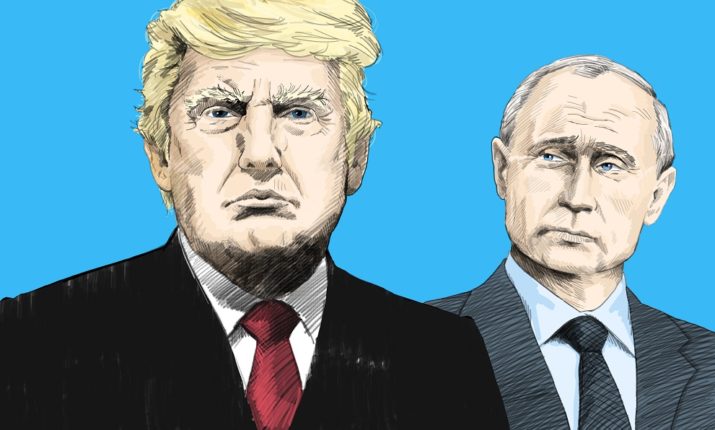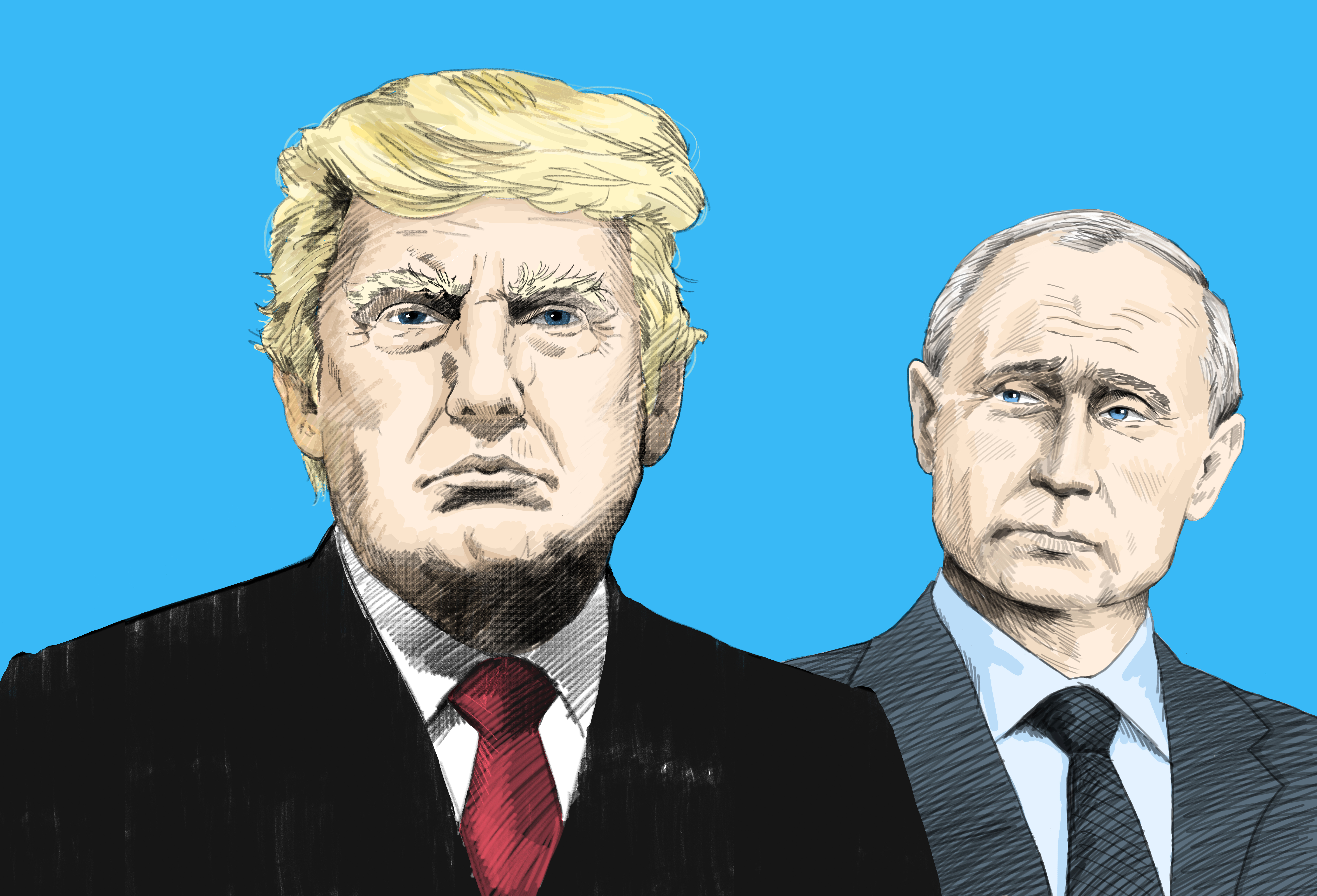

The legal interest to the application of sanctions became popular in the early 2000s, when the UN Commission on International Law prepared and presented to the UN General Assembly a Draft Articles on the Responsibility of States for Internationally Wrongful Act. However, analyzing this document, we can see that it deals more with countermeasures than with sanctions. This is understandable, considering these concepts have many differences.
The most beneficial scenario for imposing sanctions is the decision of the UN Security Council, the General Assembly, or the International Court of Justice, which automatically removes any nuances and questions from a legal point of view. However, bearing in mind how sanctions have been applied in the twenty-first century, it should be understood that they are far from the ideal legal dimension. It is worth remembering that sanctions can only be applied by the suffered state or an international intergovernmental organization, which is quite controversial, since in such a case effective economic sanctions can be effectively used only by economically powerful states, without prejudice to their own economy. To date, the issue of the legal effect of sanctions imposed by third countries is unresolved. On the other hand, in order to stop participation in the conflict of the aggressor state, it is necessary to use all means that will have a result and will not be contrary to the principles of international law. That is why we further consider the effectiveness of the application of sanctions against the Russian Federation.
The goals of the sanctions regime and its impact on regional and global architecture
The US and the EU began imposing economic sanctions on Russia after President Vladimir Putin signed a treaty annexing Crimea from Ukraine in March 2014. They later increased measures to protest Russia’s involvement in the conflict in Eastern Ukraine. The aim of the sanctions was to make Russia comply with the Minsk ceasefire accord signed with Ukraine in February 2014 and to force its economy. The reasons for strengthening and continuing the sanctions regime have dramatically changed since 2014, moving away pressuring Russia to de-occupy Crimea and cease its involvement in the fighting in eastern Ukraine.
It should be noted that the measures do not target the Russian population directly, and they aim to bring about a change in Russian policy toward Ukraine. According to Ambassador, Daniel Fried, Coordinator for Sanctions Policy at the US Department of State:
We cannot expect sanctions to lead to surrender. The relevant question is rather: are sanctions changing the context in which Russia’s decisions are being made? Would we have achieved the Minsk package, even with its weakness of implementation, without sanctions? Consider the alternative of the failure of transatlantic unity and no sanctions. What would President Putin have then concluded about the character and strength of the West?[1]
While the scope of sanctions has been widened and strengthened several times since 2014, the expected effect has still not been achieved. Central and Eastern European leaders are divided over Russian sanctions, and this division has only deepened over time. Judy Dempsey, analyst at the Carnegie Centre, characterized the crisis as following:
European countries do not share common positions over many issues. It is quite remarkable that EU member states have been united over continuing the sanctions on Russia. Yet this does not mean that they have a common position. A common position entails having a shared perception of the threat and having a shared perception of a strategy. When it comes to Russia, the member states lack both. The northern countries, including the Baltic States and most of the Central and Eastern European countries certainly see Russia as a threat. But they cannot agree on how to counter that threat. The United Kingdom has recently adopted a much tougher stance towards the Russian president, Vladimir Putin, but the UK’s threat perception is entirely different from states like Sweden or Poland. The southern countries understandably have a completely different perception of threats to them.[2]
Tensions within the EU are growing every year between supporters and opponents of sanctions. Some politicians argue that Putin’s purposes extend far beyond the borders of Ukraine, while others believe that Putin will be satisfied if he wins control over Ukraine alone, thereby consolidating control over the ex-USSR area. In the wake of the sanctions regime, some EU member states, including Austria, Cyprus, Germany, Greece, France, Hungary, and Italy, have said either publicly or privately that they are interested in having sanctions lifted as soon as possible. While the US insists on tougher sanctions and will supply arms to Ukraine, France and Germany have both expressed skepticism that American weapons will help in resolving the conflict. Additionally, the US is opposed to Nord Stream 2 and will impose sanctions against Russian companies. However, those sanctions have undermined solidarity within the EU. The active lobbying of Nord Stream 2 by Germany, Austria, France, and others have allowed the Kremlin to expand its export capacity to the EU and circumvent the Baltic states, Poland, Slovakia, the Czech Republic, and Ukraine – giving Moscow a stronger hand in its Eastern European policy. Russia is also doing its best to create a split between the US and the EU (and within NATO) by generating the idea that Washington is deliberately fueling the crisis in Ukraine and dragging Europe into it, thereby damaging EU member states. Despite sanctions and certain restrictions on Russian oil and gas industries, Moscow still remains the main supplier of hydrocarbons to Europe and seeks to play this card accordingly. Moreover, Putin’s team and Russian propaganda work intensively on the formation of so-called lobbying of energy interests among European officials. Recent events associated with an active promotion of Nord Stream 2 and increasing capacity of the OPAL gas pipeline are bright examples of the success of Russian energy lobbying.
Effectiveness of the sanctions
The effect of sanctions on the US economy has been extremely limited, largely due to the relatively small share of Russian trade within the wider US economy. GDP growth in the US has remained positive since the imposition of sanctions, although export and import trade volumes with Russia have decreased in the years following. Similarly, GDP growth has stayed positive within the EU, although trade with Russia composes a larger share of the total economy. The impact has consequently been greater on the EU, although its worst effects appear to have been mitigated. In 2015, Russia was the EU’s fourth largest trading partner, compared to the 30th largest trading partner for the US.
In Russia, on the other hand, GDP growth has decreased since the imposition of sanctions, contracting by 2.8 percent in 2015. While it is harder to causally link the impact of sanctions with Russia’s decline in economic growth, it appears the decrease in trade has impacted the country’s economic prospects. The future of the sanctions regime seems to hinge primarily on the political interests of the US and the EU – the opposition to sanctions by some leading EU member states as well as reticence by the Trump administration to crack down on Russia provide areas of concern for the sustained imposition of sanctions. Nevertheless, the US’ announcement of a new round of sanctions on selected Russian elites in March 2018 provides some guarded optimism that sanctions will be upheld over the near future.
It is necessary to voice some skepticism regarding the actual potential of sanctions to change or moderate Russian behavior. The Graduate Institute’s Targeted Sanctions Consortium analyzed the usage of sanctions by the UN specifically and found that on average sanctions are effective in achieving their stated goals approximately 31 percent of the time. Sanctions are ultimately more effective at signaling or constraining than eliciting a change in behavior.
Thus, the US and EU sanctions against Russia provide a united front to challenge Russia’s increasing aggression and disregard for international law, but they are less likely to produce a change in Russia’s current actions. The continued use of sanctions may help to limit future behavior through the increasing of perceived costs of aggression by Russia, while also providing a deliberate effort to delegitimize acts that violate international law. It follows that while the sanctions regime may be unable to force Russia to abandon its illegal annexation of Crimea, the sanctions are still worthwhile in preventing similar behavior in the future.
It is worth considering that the Kremlin has reacted quickly to the new sanctions, and it seems that Moscow always has a plan for how to best mitigate the sanctions’ negative impact. For example, Russia prepared in advance for the announcement of the US sanctions at the beginning of 2018. Therefore, according to federal decrees 1428 and 1429, Russian state companies should not disclose their suppliers and sub-contractors from November 2017 to July 2018. Thus, Moscow seeks to hide from the US enterprises dealing with the Russian defense and intelligence agencies. Moreover, Russian politicians repeatedly stressed that a new special bank for the program of rearmament of the Russian armed forces should be created, thus having saved Sberbank and VTB from the US sanctions.
After the presentation of the “Kremlin report,” Russian oligarchs started talking about the possibility of repatriating their assets from abroad to Russia. The size of these assets can be anywhere from $200 billion to $1 trillion, according to various estimates. In addition, this may create a separate financial instrument for such operations and guarantee their anonymity. This means that Putin’s team is highly interested in involving this money in the Russian economy, including for the development of its military-industrial complex, investing in nuclear and chemical programs, and, for example, support broadcasting in Russian media abroad. For many years now, Russia has subsidized the energy complex of so-called “union states” – Belarus and Armenia – manipulating them with gas and oil prices. According to the report of Russian newspaper “Vedomosti,” the export of energy resources to Belarus at below-market prices costs Russia about $2.4 billion every year. The relationship with Belarus is uniquely important to Kremlin, but the sanctions impact the Russian subsidy policy, and Moscow will have to look for a way to minimize these transfers.
One of the side effects is hypothetical and provocative: sanctions represent a much greater danger to the West because Russia is pushing for closer ties with China, which in the long term may lead to the design of a Eurasian power and economic block taking complete shape after including India (by Primakov version’s – the Eurasian triad). What position will NATO be in if such a situation develops in the East? What will this mean for the system of international security and international relations? Of course, this is largely hypothetical idea, but now it is important to think about possible solutions. It is worth paying attention to the impact of sanctions on the Kremlin’s domestic policy and subsequent changes. At present, Russia has a lot of internal challenges, chiefly of an economic character. If previously the country’s status as an energy producer helped provide it with economic growth, this now looks like its primary challenge. The isolation of Russia from international markets due to financial sanctions has only worsened the impact of falling oil prices. The fall in real incomes has exposed Russians to further vulnerabilities. The dropping of economic welfare of the citizens is a cause of discontent in the social environment. In this case, Russian authorities manipulate technologies and shift responsibility for economic problems on Washington and Brussels, explaining this as a competitive struggle on the global map. And as a result, the Kremlin has taken all possible measures to control Russian media and block freedom of speech or expressions of discontent.
Conclusions and recommendations
Russia has adapted to sanctions and partially overcome their effects through commercial diversification as well through the control of civil society by the state. However, sanctions will have a long-term effect on the future economic strategy of Russia by blocking the modernization of the country, allowing corruption to flourish and inhibiting growth.
The Kremlin frequently plays on the contradictions between the US and EU regarding sanction policy and aims to break EU rules and norms on which regional security and stability are based. Consequently, this can lead to the erosion of trust and the emergence of various problems both within the EU and in US-EU relations. Debates on Nord Stream 2 harm European solidarity and divide EU states between supporters, opponents, and neutral observers. In the meantime, involving the US in this dispute, along with its intentions to impose the sanctions against aforementioned project, further complicate the situation.
An active and effective sanctions policy requires resources and allies. Thus, the EU and the US could try to involve more third-party states in their sanctions policy. This could be done together by diplomatic outreach or through the imposition of secondary sanctions to force third countries’ governments and companies to choose between the EU and US markets on one side or Russia on the other. This should be focused on Asian markets where Russia currently seeks to diversify its exports flow. Such an approach would hardly be a novelty for Washington, keeping in mind the Iranian sanctions. Nevertheless, this would be a new step for Brussels, which has long advocated against the legality of secondary sanctions and prefers to keep his options open by leaving the opportunity for dialogue with Moscow.
It is necessary to develop a joint European-American sanctions strategy, including consistent measures against state offenders of the world order and international law. The transatlantic sanctions dialogue would have a twofold effect: on the one hand, European and US entrepreneurs could take into account the possible risks and diversify their business, and on the other hand, a state offenders would be aware that sanctions will only increase, making them harder to avoid.
Within private sector, the US and EU should establish more effective and open partnership forums to specify that the foreign policy goals of sanctions are implemented. Notably, regular communication between governmental and business actors will contribute to building trust, facilitating the development of relations, and helping spread technical knowledge.
In order to more effectively design sanctions that achieve stated goals, the US and EU should identify the keys targets areas. In the case of Russia, energy is the most important resource for its budget, military, and social programs. Thus, threatening the imposition of the oil sanctions against Russia, the EU could reduce its imports of Russian oil. Although the Kremlin can use additional counter-measures, there is no doubt that further Russian escalation would hurt Russia more than Europe.
Nataliia Slobodian is Head of Strategic Planning and Analysis Division, SE NEC Ukrenergo. She is Habilitated Doctor of Human Sciences in world history. Her postdoctoral thesis was “The foreign policy of the United States and the Russian Federation in the Persian Gulf,” focusing on energy policy and terrorism. She previously worked as a member of the Energy Department at the International Centre for Policy Studies in Kyiv, Ukraine. She is also a former member of the Public Council at the Ministry of Energy and Coal Industry of Ukraine. She has cooperated with the Pulaski Foundation and the National Center for Strategic Studies in Poland. Additionally, she was awarded a scholarship by the Skubiszewski Foundation.
Iryna Ptasnyk obtained a PhD at the Law Institute of Vasyl Stefanyk Precarpathian National University. Her dissertation was titled “Civil legal regulation of organ transplantation in Ukraine.” She was also a fellow of the Open Society Foundation. She obtained an LL.M at the Riga Graduate School of Law and completed studies at the Nansen Dialogue Center as part of the International Summer School at the University of Oslo.
[1] Daniel Fried conference keynote address, April 16, 2015, available at http://www.wilsoncenter.org/publication/assessing-us-sanctions-impact-effectiveness-consequences)
[2] Judy Dempsey, Does Russia divide Europe?, October 26, 2015, available at http://carnegieeurope.eu/2015/10/26/does-russia-divide-europe-pub-61780
Photo: Donald Trump and Vladimir Putin | Shutterstock
Published on February 5, 2018.




